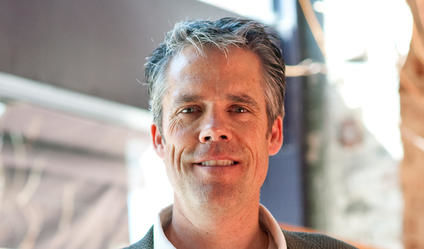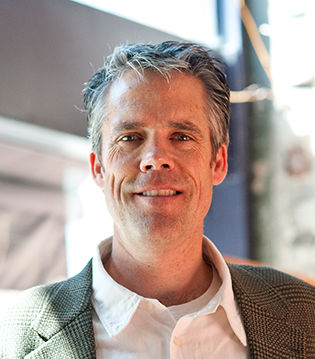Strode: Community gardens sow community health benefits

For the past 20 years, Denver Urban Gardens has helped design, build and sustain an expanding network of 150 community gardens throughout the metro area. This year, the organization has 12 new garden projects under construction and is offering technical assistance to other community garden projects around the state. In an interview with Catherine Strode, Executive Director Michael Buchenau says research shows community gardens have the potential to affect community health in urban settings.
Catherine Strode: What is the concept behind community gardens?

Michael Buchenau: All of the community gardens we support are initiated within the community. The purpose of a community garden is varied for each group that we support. They can range between a garden to educate children around science, health and culture, to a garden for seniors that is primarily meant to keep folks connected to each other and to keep them active. A lot of our gardens are neighborhood-based, in which communities are using the garden to establish some neighborhood stewardship and neighborhood attachment. A lot of gardens are a combination of all of those things with a particular emphasis on one or the other. The venue for any one of those things to be happening is the activity of growing food together.
CS: How do community gardens promote health?
MB: The research findings from the Colorado School of Public Health (Dr. Jill Litt was the primary investigator) have shown what we intuitively knew about community gardens. When folks have decided this is a project they want to take on themselves, they have a collective will and a collective purpose. Together as a group, they tend to own the project and it becomes a part of their daily lifestyle. That collective-will piece is super important as a pathway towards health. It is this social organizing around the garden. Folks have to work together and come up with ideas together. The social structure that gets developed includes peer support, peer learning, peer pressure to stay involved in the garden, to show up at the garden when everyone is going to be there. That social structure is another pathway toward sustained health. Then, there’s the basic activity of developing a relationship with nature. That. combined with the social piece, and the collective will that the project is yours, work together to create this pathway to improve behavior around eating healthier and being more active. That’s how it promotes health.
CS: Are you saying gardens promote health by promoting community involvement?
MB: Totally. There are other factors that have been studied over the years that show a definite place-attachment with gardens. People get more connected to their neighborhood. They get more involved. They know their neighbors. They know what’s going on with anybody that might be struggling with something and needs help. They feel like they’re more supported, both as a gardener and just in general, by having all of these connections. Community gardeners have a higher place attachment to their neighborhoods than general residents who don’t garden from the research findings. That sense of support you get from being involved in the garden: that other people care about you, know what’s going on in your life and are there for you if there are some challenges you are facing.
CS: What are the data on physical health benefits of gardening?
MB: The findings from the research of the Colorado School of Public Health show that gardeners eat twice as much fruit and vegetable servings as the average resident. They report (fewer) days in poor health than the average resident. They have a flat age-to-body-mass-index graph. Whereas for the average resident, it’s on a 45-degree angle, as you age, you’re going to gain weight. Gardeners don’t. There are a lot of health indicators that they’re healthier folks because of this activity they participate in. It becomes part of their daily activity. It’s in their everyday landscape and it’s just part of their life.
CS: What is the data on the mental health benefits?
MB: If you look at Dr. Litt’s research findings from the surveys and interviews, a lot of folks report that they garden because it “makes them feel good.” To the point where you hear some folks say things like, “It’s one of the only places where I have control over my addiction.” Or, “It’s a place where I go to get a stress reliever,” “It’s a place where I know I’m accepted,” “It’s a place where I people will listen to me and I connect after a stressful day.” Especially in low-income communities, where folks are dealing with serious challenges constantly – eviction potentially, someone in the family’s been incarcerated, addictions, violence. These places become places of respite for people and they’re doing something positive for their families and for themselves. They’re being productive, but it’s also a place of rest and buffering out all those other challenges they’re facing when they go home.
Catherine Strode, MPA, is Advocacy Denver’s policy and outreach specialist.














